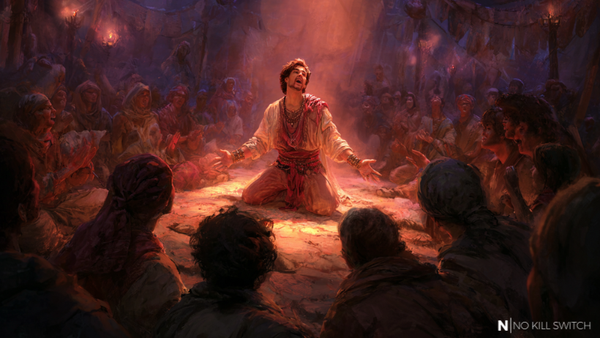TL;DR - commoditization of agile methods have brought a shift in thinking about managers' role & leadership in general, industry seems enchanted with idea of servant leadership, self-organizing teams & Management 3.0. But ... in fact the most successful examples of leadership represent a category of "scoundrel leaders" - ruthless, narcissistic manipulators who subdue everything (& everyone) to their vision & style. Let's find out why.
"Leadership BS"
Few days ago I've finished reading "Leadership BS" by J. Pfeffer. Not the first & surely not the last one book on leadership I'll read, but truly one that stands out of the line - mainly because it claims that today's mainstream thinking about the leadership is totally wrong. Among other things, author states that applying key buzzwords like "leadership by example", "servant leadership", "trust-based leadership", etc. are in many cases far less efficient than ruthless, neo-feudal rule in a strong grip of iron fist.
Book itself is really interesting (btw. you can check my review here), but in this post I'd like to focus solely on the topic of "scoundrel leaders" (term is mine, you won't find it in the book):
- who they actually are?
- are they more likely to achieve success?
- if given a choice, should one opt to work with a scoundrel leader?
Nice guys are liked, scoundrels deliver
So, how can your recognize a scoundrel leader?
- extremely target-oriented, puts goal & its fulfilment above the subordinates (!)
- manipulates other employees, uses their weak spots to stretch them to the levels outside of their comfort zone (!)
- instead of telling the truth, carefully adjusts the message to what her/his listeners would like / prefer to hear; tempts, lures, exaggerates, sometimes even lies to get the particular effect (!)
- doesn't hesitate to interfere (for the sake of the goal), even if it means downsizing, micro-managing or disrespect to someone's honest effort (!)
Sounds like a genuine asshole? Wait wait, we're not done yet ...
Narcissistic is the new black
I'd like to refer to one interesting excerpt from "Leadership BS" - based on some studies (backed with actual NPI calculation) successful leaders share some of the most crucial personality qualities together with ... narcissists. Interestingly this observation is applicable to most renown figures, like: Bill Gates, Andy Grove, Steve Jobs, Jeff Bezos, Elon Musk or Jack Welch.

But why being narcissistic helps with achieving success as a leader?
- such individuals are perceived as ones who "have the personality" - in other words: they are easy to distinguish, many find them charming and even inspirational
- self-confidence & innate tendency toward grandiosity renders them passionate & helps with close association of their vision with them personally
- as both extremely motivated (regardless of the motives ...) & highly independent, emotionally isolated individuals, they are less restricted with system limitations ("sky is the limit") & far less risk-averse than average
Scoundrel != dysfunctional asshole
It's not enough to be a tyrannical, narcissistic & selfish bastard to qualify as a "scoundrel leader". Obviously, there are certain qualities that just need to be present as well. Such an individual has to ...
- ... have a vision that is either right, or the one (s)he can made right with enough consistency & pressure
- ... have an appropriate level of charisma, be a natural alpha specimen others may not love, but at least they respect (& maybe even fear)
- ... understand the unwritten rules of symbiotic co-operation with subordinates -> they will respect her/him being in the front row, always getting the lion's share of glory, BUT they also need to gain something: these crumbs from the table have to be "nutritious" enough
- ... all the outrageous behavior mentioned in the previous two paragraphs have to be justifiable (in the eyes of other employees) with a greater need (not with selfishness) -> shared, common goal accepted by everyone
- ... (at last but not least) be consistently successful - imagine Robin Hood who wouldn't give Sheriff of Nottingham regular, painful & mocking lessons - he'd be just a miserable hobo jerk, stalking for a poor loot in the forest ...
Without this qualities, a jerk is just a jerk ...
Not only women love scoundrels ...
Alrighty, so we're not on the same page regarding who scoundrel leaders are. But is it really a good model? Should one prefer it over "self-organizing teams", "servant leader" or models inspired by Jurgen Appelo's Management 3.0?
Actually, I'd like to put opinions aside & rely more on own observations and sheer facts. And according to my experience & the cases I know, such individual-focused, genuinely-positive, respect-based models work best only within very small organizations where: everyone knows each other, overall performance depends highly on each individual's contribution, people play interchangeable roles, etc.
But once the organization grows, its processes, demands & functions grow as well. People get more & more specialized, interactions tend to complicate, entrepreneurship instincts get far less important than being good at some particular field. These organizations confront the hardships of struggling with strategic alignment, common vision, local priorities, overall communication, different backgrounds & tempers, etc.
This is almost inevitable (except of very flat, horizontally scaling organization with a simple business model) as it's the price of diversity - virtue that's valued so high in today's workplace. Direct democracy, respect to each individual & consensus are great. But they scale poorly, are prone to inefficiencies (one "bad seed" can sabotage a lot of effort) & (what is absolutely unacceptable these days) too slow.
So to have everyone running in the same direction a proper leadership has to be applied. But what is "proper"?
Strong.
Focused.
Unquestioned.
Credible - preferably already basked in a shine of glory.
Unambiguous - military style, clear chain-of-command, hierarchical order.

Being herded
And in fact this is what people want & expect (with some notable exceptions ...) - they need someone:
- who is RIGHT (& takes the responsibility for claiming that (s)he is, if (s)he isn't)
- who will LEAD them towards the goal while leaving them sufficient space to act
- who will STRESS them enough to get out of them what they have best to offer
- who they can LEARN FROM, so they can grow & possibly outgrow her/him in future
People feel that success doesn't come for free. They know they'll have to sweat and that's OK, as long as they believe the effort will pay off. Vast majority wants to be pressed on & pushed in a given direction as long as it's a good direction long-term. It's a personal sacrifice, but the one that they tend to remember fondly after several years have passed.
To conclude, I can't help bringing up a comparison to traditional, hierarchical model used by military organizations throughout the world - it's one of the oldest organizational models, it has evolved during the ages, it's still relevant AND bear in mind: it didn't change that much since ancient Rome ... So either we (as a civilisation) are incurable idiots or it's the most effective model indeed ...








